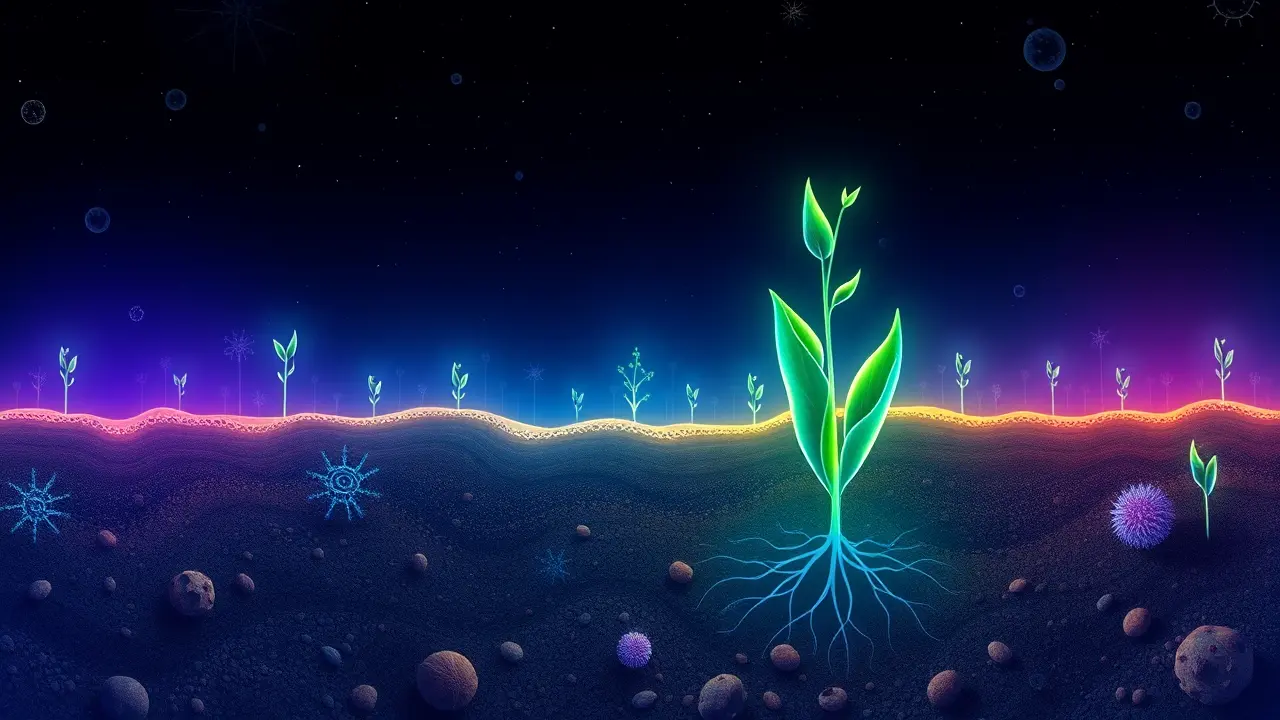
SciencebiologyGenetics
Soil microbes remember drought and help plants survive
RA
Rachel Adams
1 day ago7 min read
In the vast, interconnected web of life beneath our feet, a profound discovery is reshaping our understanding of resilience. Researchers working in the Kansas grasslands have uncovered that soil microbes carry with them a biological 'memory' of drought, a legacy etched into their very function that significantly influences how subsequent plants grow and survive.This isn't merely a passive record; it's an active, dynamic force. The study revealed a stark contrast in how different plants respond to this microbial inheritance.Native prairie plants, which have co-evolved for millennia with these microscopic communities in a delicate dance of mutualism, demonstrated remarkably robust and positive responses, almost as if the microbes were whispering ancient secrets of survival, priming the plants for the next dry spell. In comparison, modern agricultural crops like corn showed a far more muted reaction, a testament to how our intensive farming practices may have disrupted these deep-seated ecological partnerships.This divergence points directly to a history of shared evolution, a narrative of life adapting together over countless generations, a narrative we have largely overwritten with monocultures and chemical inputs. Delving deeper, the scientists employed sophisticated genetic analysis, peeling back the layers of this microbial memory to identify a specific gene intricately linked to drought tolerance.This genetic key is more than just a scientific curiosity; it represents a potential paradigm shift for biotechnology and sustainable agriculture. Imagine a future where we don't just genetically modify the crop, but we actively cultivate and reintroduce these resilient microbial communities, engineering the soil itself to be a partner in climate adaptation.This work brilliantly connects the dots between pure ecology, cutting-edge genetics, and the urgent practicalities of agriculture, suggesting that the path to food security in an era of climate chaos may not lie solely in the seed bag, but in the very ground we stand on. It forces us to reconsider the soil not as an inert growing medium, but as a living, breathing, remembering library of evolutionary wisdom, one we have only just begun to learn how to read.The implications are staggering, hinting at strategies to restore degraded lands, reduce dependency on water-intensive irrigation, and build farming systems that work with nature's ingrained resilience rather than against it. As Rachel Carson once awakened the world to the silent spring, this research illuminates the whispering earth, reminding us that some of our most powerful allies in the fight for a sustainable future are the smallest, oldest inhabitants of our planet.
#featured
#soil microbes
#drought memory
#plant resilience
#microbial genetics
#crop biotechnology
#ecology
#agriculture
Stay Informed. Act Smarter.
Get weekly highlights, major headlines, and expert insights — then put your knowledge to work in our live prediction markets.
Related News
© 2025 Outpoll Service LTD. All rights reserved.
